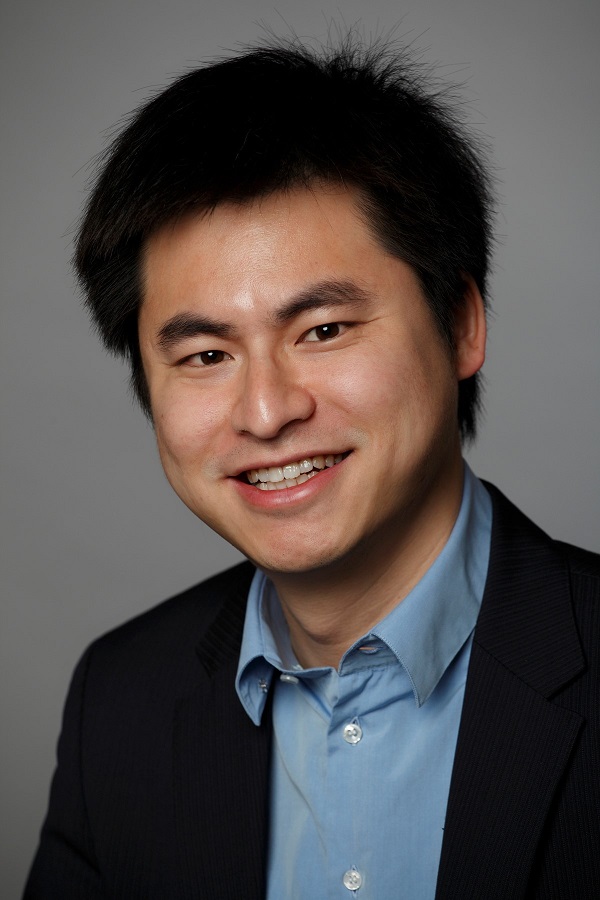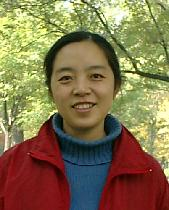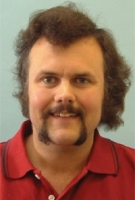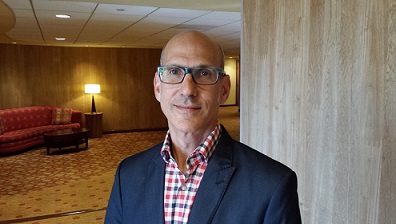Invited Speakers
Keynotes and Invited Speakers
Intelligent Environments operate at the interface between people, lifestyle and technology and, as a result, is a multi-disciplinary conference addressing a wide range of applications (eg from the smart city, to the smart classroom). The mix of speakers reflects this ethos by including traditional science keynotes (Yu Zheng, SHI Yuanchun & Gordon Hunter) with those presenting broader views concerning the societal impact of these technologies (Doug Wolens) that we hope will combine to help provide a more holistic view of the possibilities for, and consequences of, intelligent environment research. This year the societal aspects are being supported by showing some exclusive documentary footage which we hope will make your experience effective and enjoyable. In addition, this being the 10th anniversary of the Intelligent Environments series of conferences we have a keynote to mark this special occasion (Gordon Hunter) by combining his talk on technology with a look back at the changes of focus in intelligent environments over the years (he is the only person to have attended all 10 editions of IE). Thus, we hope that you will all find something in this diverse package of keynotes and invited speakers to inspire your work..
Keynote Speakers (Science & Engineering Focus)
Yu Zheng
Lead Researcher, Microsoft Research, Beijing, China

Brief Biography
Dr. Yu Zheng is a lead researcher from Microsoft Research. He is also a visiting Chair Professor at Zhiyuan College, a part of Shanghai Jiaotong University, and an adjunct professor at Southwest Jiaotong University. He is passionate about using big and heterogeneous data generated in urban spaces to tackle the big challenges that cities face. He has published over 50 referred papers as a leading author at well-known conferences and journals, such as SIGMOD, VLDB, ICDE, SIGKDD, WWW, UbiComp, and IEEE TKDE, where he received 4 best paper awards from as well as 1 best paper nominee. His research has been featured multiple times by top-tier presses, like MIT Technology Review and New Scientist. Zheng has been serving over 30 prestigious international conferences as a chair or program committee member, such as the program co-chair of ICDE2014 and UIC2014. He is currently a member of Editorial Advisory Board of IEEE Spectrum and an associate editor of GeoInformatica. He has been invited to give keynote speeches at international conferences, e.g., ISKE2013, ISGC2014, APEC 2014 smart city forum, and guest lectures in universities like MIT, CMU, and Cornell. His book, titled "Computing with Spatial Trajectories", has been used as a text book in USA, Canada, Australia, Korea, and China. Zheng has received 3 technical transfer awards from Microsoft and 22 granted/filed patents. In 2008, he was recognized as the Microsoft Golden Star. He is an IEEE senior member, ACM senior member, and a Distinguished Speaker of China Computer Federation. In 2013, he was named Top Innovators under 35 by MIT Technology Review (TR35) for his research using data sciences to solve urban challenges. He was also featured by Time Magazine due to his research on urban computing in Nov 2013. Refer to his homepage for more information http://research.microsoft.com/en-us/people/yuzheng/
Synopsis of Talk: Urban Computing with Big Data
Urban computing is a process of acquisition, integration, and analysis of big and heterogeneous data generated by a diversity of sources in urban spaces, such as sensors, devices, vehicles, buildings, and human, to tackle the major issues that cities face, e.g. air pollution, increased energy consumption and traffic congestion. Urban computing connects unobtrusive and ubiquitous sensing technologies, advanced data management and analytics models, and novel visualization methods, to create win-win-win solutions that improve urban environment, human life quality, and city operation systems. In this speech, I will present our recent research into urban computing, introducing the applications and technologies for integrating and deep mining heterogeneous data. Examples include large-scale dynamic ridesharing, identifying different functional regions (e.g., residential and commercial areas) in urban spaces, crowd sending city-wide gas consumption, and fine-grained air quality inference throughout a city. These examples have been published in top-tier conferences and journals recently, such as KDD, UbiComp, ICDE, received 4 best paper awards, and featured by influential media like MIT Technology Review etc. More details can be found on http://research.microsoft.com/en-us/projects/urbancomputing/default.aspx.
SHI Yuanchun
Director of HCI & Media Integration Institute, Tsinghua University, Beijing, China

Brief Biography
SHI Yuanchun is a professor of the Department of Computer Science, the director of HCI & Media Integration Institute, Tsinghua University and the director of Pervasive Computing Division of Tsinghua National Lab of Information Science and Technology. Her research interests include pervasive computing, human computer interaction, distributed multimedia processing and e-learning. She has been guiding the Smart Classroom Project and SEMIC Project which are experimental Smart Space systems for pervasive computing. Prof.Shi received all her PhD, MS and BS in Computer Science from Tsinghua University. She was a senior visiting scholar at MIT AI lab in 2001
Synopsis of Talk
A shared multi-display environment is populated with displays of large scale. It provides visual output channels and on-surface direct manipulation possibilities, which is an ideal setting for co-located collaborative activities. In such a system, various input and output interfaces are shared among users to assist their tasks, raising prominent issues of establishing and managing interaction paths, and issues of improving the efficiency of those large remote interfaces.
Gordon Hunter
Kingston University, London, UK

Briief Biography
Gordon Hunter has a B.A. in Mathematics from the University of Cambridge (Churchill College), an MSc in Electronic Engineering & Computer Science and a PhD in Speech, Hearing and Phonetic Sciences (Computer Speech Technology) from the University College London. Prior to joining Kingston University as a Senior Lecturer in 2003, he had previously worked as a researcher at the British Antarctic Survey, the University of Portsmouth and University College London, and as a Lecturer at St. Mary's College (Twickenham) and the University of Westminster. His research interests encompass many aspects of Artificial Intelligence and Machine Learning (especially Statistically-Based Learning) and their applications (particularly to speech and language processing). He also has interests in Mathematical & Computational Modelling in Sport, and in Statistical Physics.
Synopsis of Talk: Ten Years of Intelligent Environments
Much has changed since the first Intelligent Environments conference in the series (at the University of Essex in 2005). My talk will look back at the conferences over the last ten years, reviewing the keynote talks and noting developments within various themes of particular interest to me. I'll also look back at some of the enjoyable social and humorous aspects of the previous conferences. I will then discuss what appear to be the "hot topics" in the field at the present time, and speculate how things may develop over the next ten years.
Having presented a paper at every IE Conference so far, I'd like to look back at every individual IE conference to date, noting what changes I have seen in the content of the conference over ten years and sharing any little humorous tales from those. Although I have a reasonable selection of photographs for some of the conference, I'd appreciate any assistance other past participants can offer. If you have any photos, video or notable memories of past IE conferences please email me <G.Hunter [-at-] kingston.ac.uk>", putting "IE past conference (year)" in the subject line.
*My title is adapted from that of a paper "Twenty Years of Statistical Language Modelling - where do we go from here ?" (2000) by Professor Roni Rosenfeld of Carnegie Mellon University. That paper provided valuable inspiration to me devising the theme of this present talk.
If you are interested in the history of Intelligent Environment conferences you can download a PDF copy of his talk here.
Invited Speakers (Societal Focus)
Doug Wolens
Film Producer and Director, San-Francisco, USA

Brief Biography
Doug Wolens lives in San Francisco with his wife Katie and son. He grew-up in Chicago, earned two BA degrees, a law degree, and spent seven years as a practicing attorney in New York City; he moved to San Francisco and became a filmmaker in 1993. Wolens's first short, Happy Loving Couples, was selected to screen at the Sundance Film Festival. He's made two other shorts, Reversal (1994) and In Frame (1995), all of which have played at film festivals throughout the world. His 1996 feature documentary, Weed, premiered at the International Documentary Filmfestival Amsterdam and had a 40-city theatrical tour of the U.S. In 2000, Wolens feature documentary Butterfly was broadcast nationally on P.O.V. PBS's award-winning documentary showcase and on The Sundance Channel. Wolens successfully self-distributed Butterfly to more than 50 theatres throughout the country. More recently Wolens has produced a comprehensive and insightful documentary, The Singularity, which examines where the ever accelerating advances in technologies such as artificial intelligence might take science and humanity
Synopsis of Talk/Activities: The Singularity - Film Screening, keynote & panel discussion
Doug's contribution will consist of screening his new documentary (The Singularity), a keynote talk about the making and findings of the documentary and a panel discussion.
The Film: - THE SINGULARITY (see http://thesingularityfilm.com/) is an insightful and provocative new documentary, in which leading futurists, computer scientists, artificial intelligence experts and philosophers examine the science and technology that might lead to a time when computer intelligence exceeds that of human intelligence, a point in time called The Singularity http://en.wikipedia.org/wiki/Technological_singularity. The notion of super-intelligent systems or augmented humans has long served as a favourite topic in science fiction so, while this topic remains somewhat controversial, listening to highly acclaimed scientists presenting their arguments for and against this vision is a fascinating experience for anyone that wonders about the limits of technology and the nature of our reality. The purpose of screening this film at IE'14 is to provoke debate about the future of Intelligent Environments research which will be encouraged further through a panel discussion.
Keynote Talk - Doug Wolens will describe the making of the SINGULARITY, where he got the original idea, how he managed to take it from an idea to a finished documentary and most interestingly, his personal views having interviewed the most renowned researchers and thinkers in this area. The film on public release contains only a fraction of the interview footage, with many important views not making it into the ‘public release' which Doug will use as part of his talk. Doug has managed to produce a remarkably well balanced film, leaving it to the viewer to decide which side of the argument they subscribe to. Finally Doug will provide his personal reflections and hopes for how the science and his documentary might affect the future which many IE'14 attendees are busy researching.
Panel Discussion - The panel discussion will be an opportunity for the IE'14 attendees (a mass-assembly of experts in Intelligent Environments and Education) to debate the Singularity and its relevance to their research and consequences for future research directions. There is no doubt that the notion of the Singularity is somewhat controversial, which promises to create some impassioned and lively discussions. If, as many scientists argue, based on the accelerating strides being made in nanotechnology, artificial intelligence, and molecular biology, these changes are inevitable then for us, as researchers in intelligent environments, there are some important questions to answer. Clearly, some emerging technologies could have unknown consequences that could lead to catastrophic events or be abused for malicious purposes. Equally, technology has the potential to do immense good, if it's developed and applied in a morally responsible way. Thus, for example, the panel might debate what types of intelligent environment technologies might lead to better or worse futures, what kind of humans or society we want to become and how can we, as researchers, work towards the positive elements of technology and avoid those that might destroy the things we hold dear. The panel will be assembled from a mix of experts attending IE'14 (including Doug Wolens) and invitations will go out in due course (in the meantime, if you would like to be part of this panel, please email pc@intenv.org). The intention is that the panel should serve simply as a catalyst for a wider discussion that fully engages the audience.
